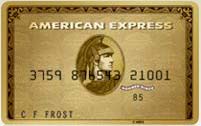AmEx lures card-holders with $300 to give up their cards
25 Feb 2009
Gone are the days when AmEx coined the famous by-line ''Never leave home without it,'' - the US credit card issuer is now offering select customers $300 to clear their balances and buzz off.
 The unusual recovery move to induce delinquents to pay up reflects the worsening conditions in the credit-card market as some economist have been warning since late last year that the second big economic disaster in the US after the housing mortgage crisis would come from the credit card industry. (See: The US braces for next crisis: Credit cards)
The unusual recovery move to induce delinquents to pay up reflects the worsening conditions in the credit-card market as some economist have been warning since late last year that the second big economic disaster in the US after the housing mortgage crisis would come from the credit card industry. (See: The US braces for next crisis: Credit cards)
Out of the 44.2 million AmEx credit-card holders, the company is making the unusual offer to some credit-card holders who will be offered a $300-prepaid card, to use at all outlets accepting AmEx cards, if they clear all their balances between 1 March and 30 April.
AmEx has started mailing this offer to select customers and it is valid to only those who receive a mailing with a registration code from the company. By accepting the offer, the card holder will lose all their accumulated reward points. AmEx has cautioned them to use up their reward points before enrolling for the offer.
Molly Faust, the spokeswoman for AmEx said that the offer is being made to help card holders pay their debt and manage their finances. She said that the numbers were small and targeted only cardholders who have sizeable outstandings and with little spending or payments.
AmEx originally offered its card to wealthy customers and companies but in the recent past had begun offering them to a wider section of people, a policy that backfired in the current economic downturn and joblesness that spiked defaults. Credit rating firms have warned that defaults would push the industry into deeper mess.
In October, the largest credit card company in the US in terms of purchases, AmEx, had said that it would cut around 10 per cent of its global workforce to cut costs in the face of rising defaults. (See: Amex to cut 7,000 jobs amidst rising defaults)
It had also said at that time that by scaling-back investment spending on technology, marketing and business development, and streamlining costs associated with some rewards programmes, it would save around $1 billion in 2009.
Reports indicate that a substantial portion of the 158-million US card holders holding 1.5 billion cards have started defaulting, forcing banks to write down approximately $21 billion in bad credit loans in the first six months of the year. Unpaid credit card bills are expected to lead to a further loss of $55 billion in the next 12 months.
While campaigning in Edinburg, Texas, US President Barack Obama had warned students at the University of Texas-Pan American, in February 2008, ''Just be careful about those credit cards, all right? Don't eat out as much.'' After the foreclosure crisis, he had warned ''credit cards are next in line.''
As with nearly all US banks giving mortgage loans to people who could ill afford them, the same story is expected to unfold in the credit card industry where banks have been aggressively peddling credit cards over the years to consumers who are the least eligible to hold one, including students, as returns from cards is higher than other banking services.
Reports quoted Moody's investor service as saying in October last year that credit card defaults are virtually certain to surpass the post-recession peaks they had hit in 2003. Unemployment is expected to rise until the fourth quarter of 2009, which will ensure that the default rate goes to a peak of around 8.5 per cent from 6.82 per cent it had held during August 2008.
For years, consumers in the US have become ever dependent on credit cards as the average American does not leave home without at least 10 credit cards and a whole host of other supermarket credit cards in his wallet.




















